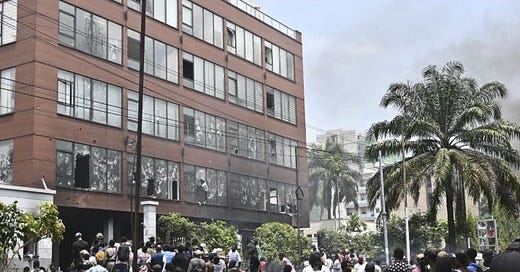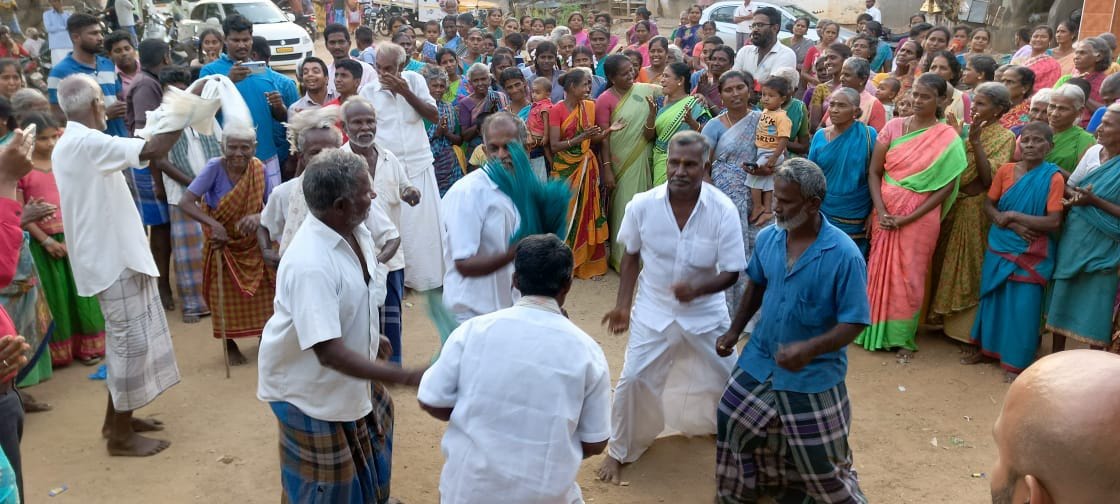Excluded Headlines: If Congo were in Europe everyone would be talking about this
Stay up to date on the Global South news stories the US- and Eurocentric media overlook, with author and journalist, Tamara Pearson.
In this week’s Global South news:
Protests outside France, US embassy in DR Congo, major city captured, and 500,000 people flee their homes in January - M23 troops entered the city of Goma, with a population of around 3 million, on Monday and after clashes with the Congolese army, have reportedly taken control of large parts of the city. According to the government, this take over includes bombing hospitals and camps of displaced people. There’s no running water or electricity in the city, and citizens, including health workers, are stranded where they are. Thousands have fled Goma, many to Rwanda.
Estimates differ on the total number of internally displaced people in Congo, but it seems to be around 4.6 million, and now, in January alone, 500,000 people have fled their homes, as the M23 advanced.
Financial interests: The M23 are backed by Rwanda, which has a MOU (Memorandum of Understanding) with the European Union to supply it with critical minerals. Rwanda has been illicitly extracting gold, cobalt, and coltan - the latter two vital to tech - from eastern Congo. These minerals are used by Apple subsidiaries in France and Belgium. Despite Rwanda’s role, various Western countries provide it with aid, trade deals, and military funding. Analysts call the conflict a “30-year war of aggression and plunder by US allies”- Rwanda, and Uganda. Apart from the US and EU, the UK and France also provide support.
Protests: As a result, there have been protests recently around the country, including the capital, with demonstrations at universities and in front of the US, French, Ugandan, Kenyan and Rwandan embassies — nations protesters accuse of complicity in the long-lasting conflict. People also denounced the lack of international action. Part of the French embassy was set on fire, and the Ugandan embassy was ransacked. The government then banned protests in Kinshasa.
Note: Of course, not only if this happened in Europe or the US or Canada, it would be covered aggressively by the media - but this wouldn’t actually happen in the West, because the West is leading mineral and resource plundering, not a victim of it. Source, source, source, source, source, source, source, source, source.
Partial dollarization in Cuba - Though Cuba’s national currency will continue to be the main currency for almost everything, some shops, such as Cadena Caribe, will accept payment in US dollars. Approved foreign currency can also be used for tariff payments, some tourist services, pharmacies, and international clinics. This was largely the situation already, but the government hopes to have some control now, and to increase its access to foreign currency. Source, source.
An estimated 15 million people to face hunger this year in Myanmar - The UN said hunger levels will worsen in the country as conflict affects access to food, and the economy and climate also impact food production and access. Source.
Thailand makes hormone therapy free for trans people - On Monday, Thailand’s Public Health Ministry allocated 145.63 million baht for HRT, to cover the HRT needs of 200,000 transgender Thais. Source.
Protesters in India force government to cancel mining permit - People in the state of Tamil Nadu celebrated their victory against mining giant Vedanta Limited, after they forced the government to withdraw its permit to mine tungsten in an environmentally and culturally sensitive region. On Monday, the provincial government then announced the withdrawal of criminal cases against protestors. Security forces had booked over 11,000 people on criminal charges for protesting the project. Source.
Useful reads
Greed and Cynicism Fuel Rwanda’s War in DRC
West using proxies for war in Congo (video analysis).
Reclaiming narratives: African storytelling as a path to justice and reparations
Gaza’s Unbreakable Resistance: A Historical Perspective on the War and Its Aftermath
South African telescope discovers a giant galaxy that’s 32 times bigger than Earth’s







